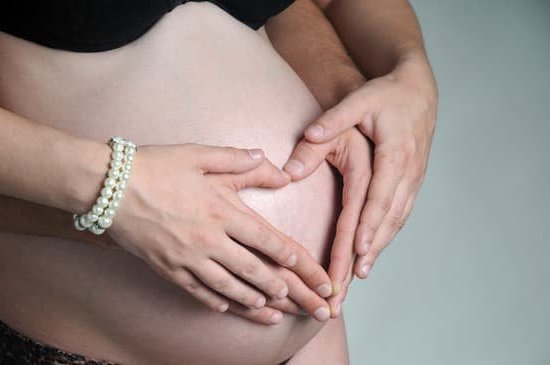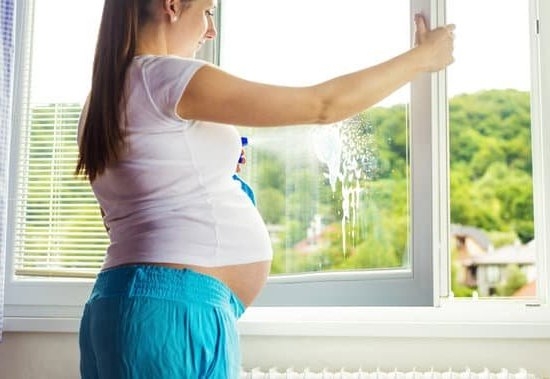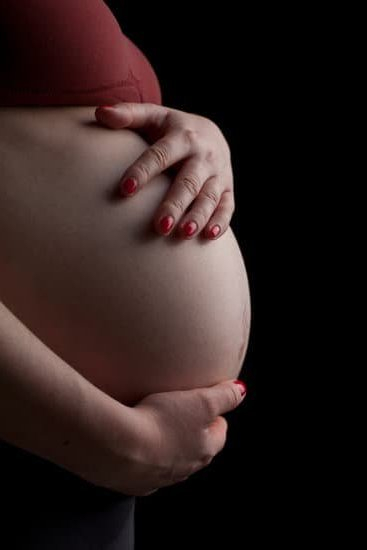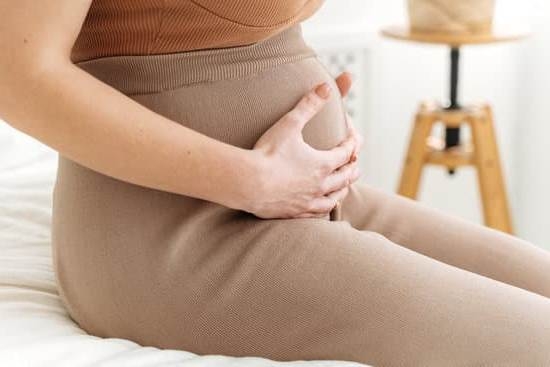Can you drink coffee in early stages of pregnancy is a common question that many expectant mothers grapple with. The debate over caffeine consumption during pregnancy has sparked various concerns and discussions among health experts and soon-to-be parents alike. Understanding the impact of caffeine on the developing fetus is crucial as it plays a significant role in maternal health and well-being during this delicate stage.
Caffeine, a naturally occurring stimulant found in coffee, tea, and certain beverages, can have notable effects on the body, including increased heart rate and improved alertness. However, when it comes to pregnancy, the story may differ. Research suggests that consuming high levels of caffeine during pregnancy can potentially harm the fetus and lead to adverse outcomes. This raises questions about whether pregnant women should limit or refrain from drinking coffee altogether.
Health experts emphasize the importance of making informed choices regarding caffeine intake during pregnancy. While moderate coffee consumption may be considered safe for some expectant mothers, it is advisable to consult with healthcare providers to assess individual risks and make personalized recommendations. By exploring research studies and professional opinions on this topic, pregnant women can navigate their coffee consumption responsibly for the well-being of themselves and their baby.
Understanding Caffeine
Caffeine is a naturally occurring stimulant that is commonly found in coffee, tea, soft drinks, and chocolate. It works by blocking the action of adenosine, a neurotransmitter in the brain that promotes relaxation and sleep. When adenosine is blocked, adrenaline levels increase, leading to heightened alertness and energy. This is why many people turn to caffeinated beverages like coffee to kick start their day or stay awake during long hours.
However, caffeine consumption during pregnancy can be a topic of concern due to its potential effects on both the mother and the developing fetus. While moderate caffeine intake is generally considered safe for most adults, pregnant women are often advised to limit their daily caffeine intake due to its ability to cross the placenta and reach the fetus.
Some studies suggest that high levels of caffeine consumption during pregnancy may be associated with an increased risk of miscarriage or low birth weight. Therefore, it becomes crucial for expectant mothers to understand how caffeine affects their bodies and make informed choices about their daily consumption.
It is important for pregnant women to note that caffeine content varies across different sources – for instance, a standard 8-ounce cup of coffee can contain anywhere between 80-100 milligrams of caffeine. Monitoring overall caffeine intake from all sources such as tea, soda, or energy drinks can help prevent exceeding recommended limits during pregnancy. Consulting with a healthcare provider can provide personalized recommendations based on individual health factors and stage of pregnancy.
| Caffeine Content | Approximate Amount |
|---|---|
| Cup of Coffee | 80-100 mg |
| Tea (8 oz) | 30-50 mg |
| Soda (12 oz) | 30-40 mg |
The Effects of Caffeine on Pregnancy
Understanding Caffeine and Pregnancy
Caffeine is a stimulant that can be found in various beverages such as coffee, tea, and soda. When consumed, caffeine crosses the placenta and reaches the fetus, affecting the baby’s developing central nervous system. The impact of caffeine on pregnancy has been a topic of concern for expecting mothers, especially during the early stages of fetal development.
Research Findings on Caffeine Consumption During Pregnancy
Recent studies have shown that high levels of caffeine intake during pregnancy
Guidelines From Health Professionals
Health experts advise pregnant women to monitor their caffeine intake during the early stages of pregnancy. The American College of Obstetricians and Gynecologists (ACOG) recommends that pregnant women consume less than 200 milligrams of caffeine per day, which is equivalent to about one 12-ounce cup of coffee. It is crucial for expectant mothers to consult with their healthcare provider about their caffeine consumption habits to ensure the well-being of both mother and baby during pregnancy.
Research Studies
When it comes to pregnancy, one of the common concerns that expectant mothers may have is whether it is safe to consume coffee or other caffeinated beverages. Research studies have delved into this topic, aiming to provide clarity on the effects of caffeine intake during pregnancy.
Here are some key findings from recent studies regarding drinking coffee in the early stages of pregnancy:
- A study published in the Journal of Caffeine Research found that high levels of caffeine consumption during pregnancy were associated with an increased risk of miscarriage. The research suggested that limiting caffeine intake could help reduce this risk.
- Another study published in the American Journal of Obstetrics and Gynecology highlighted that excessive caffeine consumption can lead to low birth weight and even premature birth. It emphasized the importance of moderation when it comes to consuming caffeinated beverages.
- On a more positive note, a study conducted by researchers at Harvard Medical School indicated that moderate caffeine intake (around 200mg per day) did not seem to have a significant impact on pregnancy outcomes. This suggests that pregnant women can still enjoy their daily cup of coffee, as long as they stay within recommended limits.
Overall, while research on the effects of caffeine during pregnancy continues to evolve, it is crucial for expectant mothers to be mindful of their caffeine consumption and consult with their healthcare providers for personalized guidance. Making informed choices about drinking coffee can play a role in supporting a healthy pregnancy journey.
Recommendations From Health Experts
When it comes to the question “Can you drink coffee in early stages of pregnancy?” many health experts and professionals have varying opinions. Some believe that consuming small amounts of caffeine, such as one cup of coffee a day, is generally considered safe during pregnancy. However, it is essential for pregnant women to be mindful of their overall caffeine intake from all sources, including coffee, tea, soda, and chocolate.
According to the American College of Obstetricians and Gynecologists (ACOG), moderate caffeine consumption – defined as less than 200 milligrams per day – is unlikely to have any major negative effects on pregnancy. It’s important to note that caffeine content can vary significantly among different types of coffee and other beverages. Pregnant women are advised to keep track of their daily caffeine intake and make informed choices.
On the other hand, some health professionals recommend that pregnant women avoid or limit their caffeine intake as much as possible during the early stages of pregnancy. High levels of caffeine have been linked to increased risks of miscarriage and low birth weight. Ultimately, it is crucial for expectant mothers to consult with their healthcare providers about their individual circumstances and ensure that they are making the best decisions for a healthy pregnancy.
| Caffeine Intake | Recommendation |
|---|---|
| Less than 200mg/day | Considered safe by ACOG |
| Avoid or limit | Some health professionals recommend this approach |
Safe Caffeine Alternatives
During pregnancy, many women choose to limit their caffeine intake due to concerns about its potential effects on the developing fetus. While some guidelines suggest that moderate caffeine consumption is safe during pregnancy, others recommend avoiding it altogether. For those looking to reduce or eliminate their coffee consumption, there are plenty of safe alternatives to consider. Here are some options for pregnant women who want to limit their coffee intake:
- Decaffeinated Coffee: Opting for decaffeinated coffee is a popular choice for pregnant women who still want to enjoy the taste of coffee without the caffeine content. It provides a similar flavor profile without the stimulant effects.
- Herbal Tea: Herbal teas like chamomile, peppermint, or ginger can be great substitutes for coffee during pregnancy. These caffeine-free options offer a variety of flavors and potential health benefits.
- Hot Chocolate: Indulging in a warm cup of hot chocolate can satisfy your cravings for a comforting drink without the caffeine found in coffee. Just be mindful of the sugar content and opt for dark chocolate varieties when possible.
In addition to these alternatives, pregnant women can explore other beverages like fruit smoothies, fresh juices, or flavored water as refreshing options that don’t contain caffeine. It’s important to stay hydrated during pregnancy, so incorporating plenty of water into your daily routine is also key.
Ultimately, finding a suitable replacement for coffee during pregnancy is a personal choice, and it’s essential to listen to your body and consult with your healthcare provider if you have any specific concerns regarding caffeine consumption during this crucial time.
Personal Experiences
Managing Coffee Intake During Pregnancy
Many women face dilemmas when it comes to caffeine consumption during pregnancy. Some are avid coffee drinkers who find it challenging to cut back, while others may be more cautious and opt to abstain from coffee altogether. The decision to drink or avoid coffee during the early stages of pregnancy can be a personal one, influenced by individual preferences, health considerations, and medical advice.
Struggles and Resolutions
For those who enjoy their daily cup of coffee, the thought of giving up their morning ritual can be daunting. However, concerns about potential risks to the developing baby often prompt expectant mothers to reconsider their caffeine intake. Some women find ways to compromise by switching to decaffeinated coffee or limiting their consumption to a single cup a day. Others may seek alternative sources of energy such as herbal teas or fruit smoothies.
Seeking Support and Guidance
Navigating the decision on whether to drink coffee in the early stages of pregnancy can be challenging, but it is essential for women to prioritize their health and the well-being of their unborn child. Consulting with healthcare providers can provide valuable insights and personalized recommendations based on individual circumstances.
Additionally, connecting with other expectant mothers who have faced similar choices can offer support and reassurance throughout this journey. Ultimately, making informed decisions about caffeine intake during pregnancy is crucial for promoting a healthy pregnancy and ensuring the best possible outcomes for both mother and baby.
Conclusion
In conclusion, the question of whether one can drink coffee in the early stages of pregnancy is a topic that continues to spark debate and concern among expecting mothers. While some studies suggest that moderate caffeine consumption may not significantly harm the baby’s development, it is crucial for pregnant women to be cautious and considerate of their choices.
The effects of caffeine on pregnancy vary from person to person, so it is always best to consult with a healthcare provider before making any decisions.
Health experts generally advise pregnant women to limit their caffeine intake during the early stages of pregnancy to reduce potential risks. It is recommended to keep daily consumption below 200mg, which typically translates to one or two cups of coffee. However, individual tolerance levels can vary, so it’s essential for expectant mothers to pay attention to how their bodies react and adjust accordingly.
Ultimately, every woman’s pregnancy journey is unique, and what works for one may not work for another. Personal experiences shared by women who have navigated the decision on whether to drink coffee during pregnancy can provide valuable insights and perspectives for those facing similar dilemmas. As with any health-related decision, being informed, consulting with healthcare professionals, and listening to your body are key factors in making the best choice for both you and your unborn child.
Frequently Asked Questions
What Happens if You Drink Coffee in Early Pregnancy?
Drinking coffee in early pregnancy can potentially pose risks to the developing fetus due to the caffeine content. High caffeine intake has been linked to an increased risk of miscarriage and low birth weight. It is generally advised to limit caffeine consumption during pregnancy.
What if I Drink Coffee Before I Knew I Was Pregnant?
If you unknowingly drink coffee before realizing you are pregnant, there is no need to panic. Many women consume caffeine before they find out they are pregnant and their babies turn out perfectly healthy. However, it is advisable to reduce or eliminate caffeine intake once pregnancy is confirmed.
Can I Drink Coffee During the Two Week Wait?
During the two-week wait, which refers to the time between ovulation and a potential positive pregnancy test, consuming moderate amounts of coffee should not significantly impact fertility or early pregnancy if it occurs. It’s essential to be mindful of overall caffeine intake during this time as well, considering potential effects on conception and early pregnancy health.

Welcome to my fertility blog. This is a space where I will be sharing my experiences as I navigate through the world of fertility treatments, as well as provide information and resources about fertility and pregnancy.





